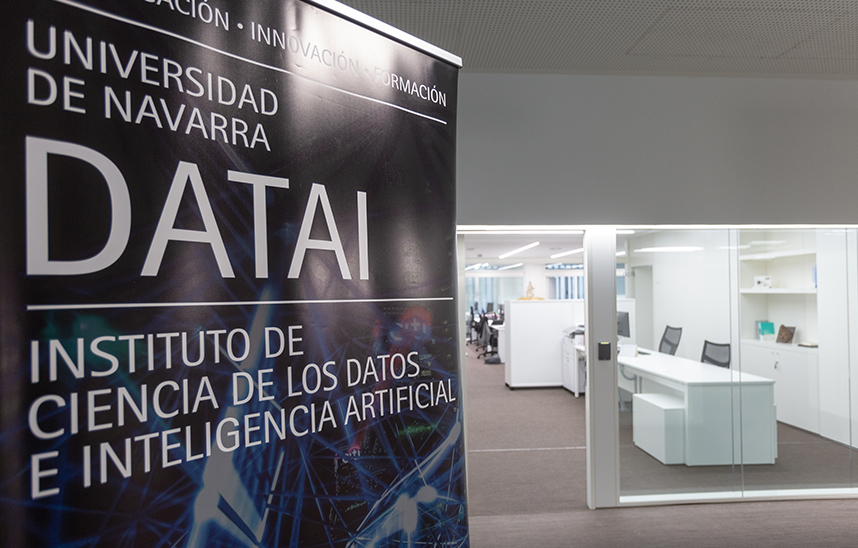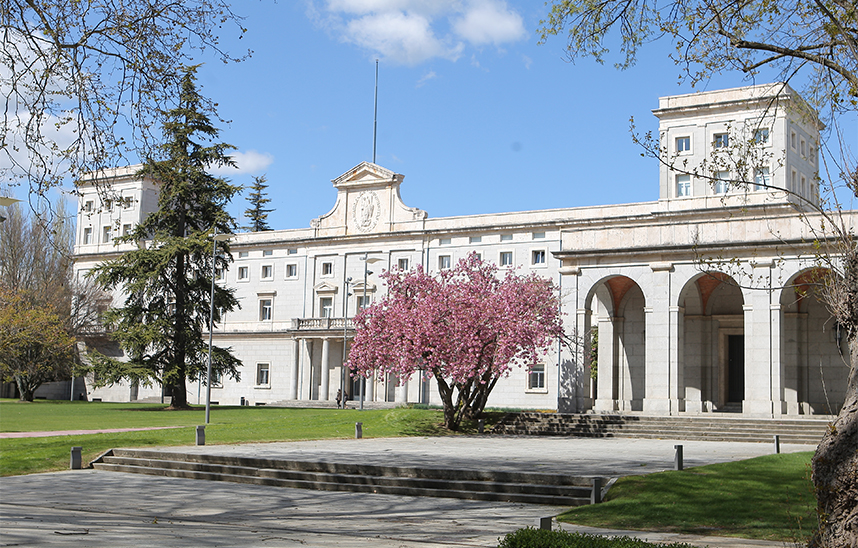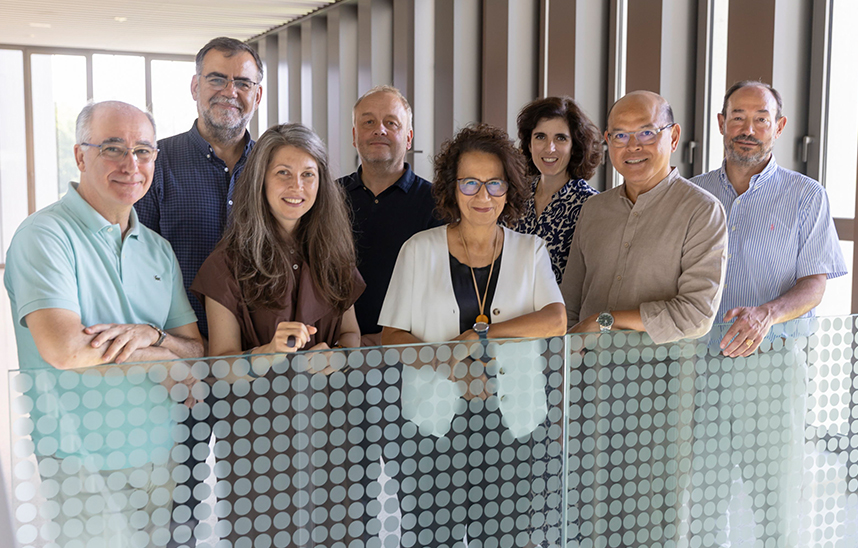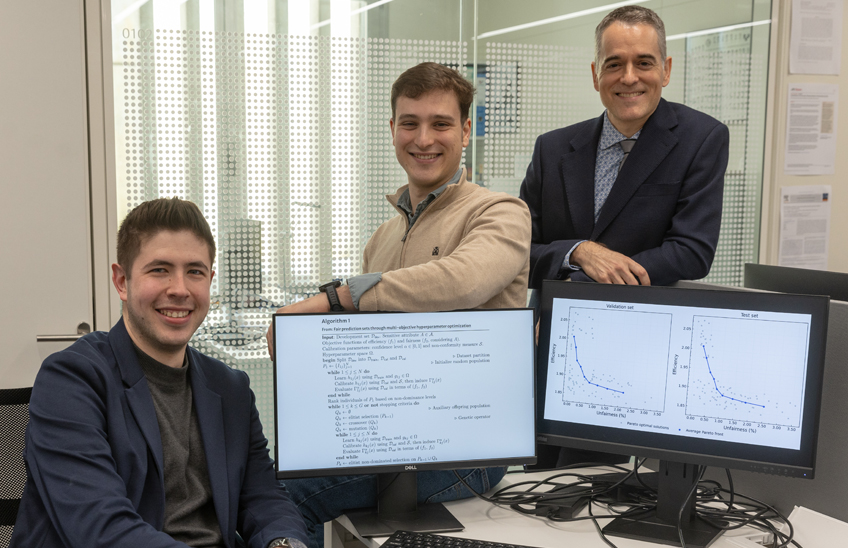BBVA and the University of Navarra start a pioneering work on applied research on AI manager
The three-year 'Fair Learning' project will address the ethical, technical and regulatory challenges of artificial intelligence, and design a framework to ensure privacy, fairness and autonomy for individuals.

PhotoManuelCastells/Jesús López Fidalgo, coordinator of the project on behalf of the University of Navarra and director of the Institute of data Science and AI.
The automation of decisions such as the granting of credit, the selection of staff or access to services makes it essential to ensure fairness and transparency in artificial intelligence systems. These challenges are not only technical but also social, and therefore require ethical reflection, supervision and institutional commitment. The 'Fair Learning' project , coordinated by the Data University (BBVA) and the Institute for data Science and Artificial Intelligence (DATAI) of the University of Navarra, seeks to respond to this challenge from technological, philosophical and legal perspectives.
Over the next three years, twenty experts, including data scientists from BBVA and academics from the University of Navarra from various disciplines such as engineering, Philosophy, medicine, law and Economics, will collaborate to design a framework to detect, mitigate and correct bias, ensure privacy, fairness and autonomy of individuals, and define best practices in accordance with current rules and regulations .
"This project is a pioneer in the financial sector and reaffirms BBVA's commitment to advance in its technological transformation without losing focus on people," says Josep Amorós, project coordinator and manager of Analytics Transformation at BBVA. "AI is already a fundamental pillar of the bank's transformation and will continue to be even more so in the coming years, so we must ensure that its development follows principles of fairness, accountability and transparency".
"AI manager is one of the great challenges of this new era, and beyond the mere application of general ethical principles, there remains an open field to explore throughmultidisciplinary research ," says Jesús López Fidalgo, coordinator of the project on behalf of the University of Navarra and director of the Institute of data Science and AI. "This subject of research is at the core of the University of Navarra, which has the optimal human resources to carry it out, together with the BBVA Data University team," he stresses.
The virtuous triangle: technology, Philosophy and regulation
One of the main explorations of 'Fair Learning' is how to mitigate the presence of biases in the data. To do this, the work team will use advanced mathematical and statistical methods that help prevent models from learning discriminatory or biased patterns during training, compensate for the underrepresentation of data sets (e.g., from a given demographic group ) in larger data sets, or monitor the results of trained models to ensure that they do not violate the interests of any population group .
In addition, the team will incorporate philosophical frameworks such as human-centered AI and virtue ethics, which guide technological development following moral criteria and social responsibility. The goal is to build systems that guarantee respect for privacy, promote equity and reinforce people's autonomy without supplanting them. In addition, it will analyze how to carry out ethical audits and establish continuous assessment processes that ensure the constant improvement of these systems.
In the regulatory field, the 'Fair Learning' project will analyze the current legal framework , based on the new European AI Regulation (EU AI Act), to define best practices and propose recommendations to ensure an ethical and legally aligned implementation of artificial intelligence systems.
The 'Fair Learning' project is part of the partnership between BBVA and the University of Navarra in the field of data. This trajectory began in 2020 with a pioneering agreement to train bank employees in data , create its own group in the officialMaster's Degree in Big Data Science and promote joint industrial doctorates. Today, there are already more than 90 Master's Degree graduates, 135 certified data scientists and 12 doctoral students, bringing to 239 the number of specialized professionals resulting from the partnership. In 2024, the momentum reached the top management with a Senior Management Program in Generative AI that has already trained more than 150 BBVA leaders in the strategic use of these technologies.




